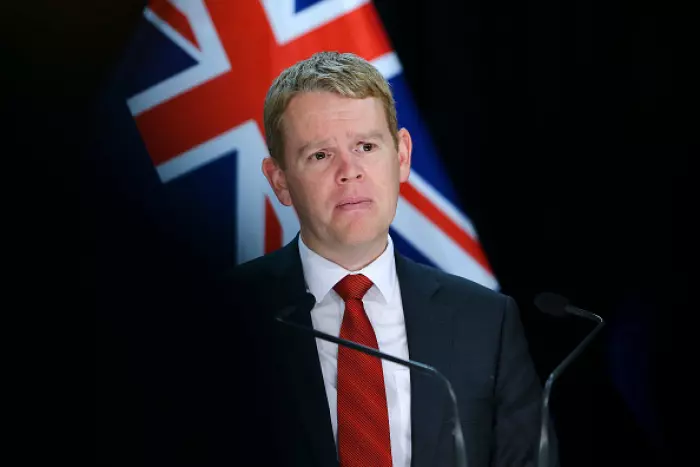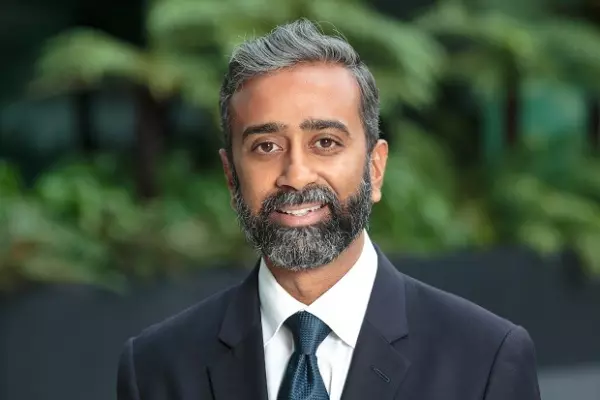Globally, we are facing an unprecedented healthcare crisis. However, New Zealand’s situation is much worse because of the government’s unfathomable decision to upend our health system, centralising everything, with officials and consultants running the show.
With Rob Campbell – who bravely took on the health reform challenge – now out the door, we’re all seeing behind the curtain of Oz, but it’s all jibber jabber that ignores the real state of affairs.
In December 2019, NZ had 253 people waiting more than 12 months for their first specialist assessment.
By June 2022, this number had jumped to 4,255 people and while Te Whatu Ora - Health NZ is squirrelly about the latest stats, recent reports suggest that things are getting much worse very quickly.
There are many other appalling stats.
A catastrophe
The health reforms rollout began almost two years ago, were in place nine months ago and have had no positive impact whatsoever. In fact, the impact is generally negative, with leadership chaos across the sector.
The district health boards (DHBs) are now gone and the ability to make regional/local decisions has also disappeared.
Previous minister of health Andrew Little’s refusal at the time to acknowledge that NZ's health system is in crisis is akin to former US President Donald Trump’s election denials.
Boxing on with the current half-baked plan will have serious consequences for the health of New Zealanders. The current crisis is heading towards a catastrophe, with the likelihood of tens of thousands of people experiencing avoidable serious illnesses, significant loss in quality of life or early death.
Simply put, Labour’s consultancy-driven reforms make Russian President Vladimir Putin’s Ukraine invasion plans look well thought through. It is time to call a timeout on the health reforms. They should be the next to go on to prime minister Chris Hipkins’ policy bonfire.
Many people will say that healthcare is facing challenges worldwide, and this is indeed true. Two years of covid lockdowns and mask-wearing not only protected populations from the virus but also other bugs. They are now making up for lost time, as seen with the high rate of respiratory illnesses in the United States.
Many health conditions also went undiagnosed or untreated and populations worldwide are now sicker. This increased demand has resulted in a healthcare logjam.
Patients can wait for two weeks or more just to see their GP, if they can see them at all. ED departments are overflowing. Hospitals can’t cope, etc.
A totally nebulous construct
In the midst of this health crisis, it beggars belief that Little decided to completely upend our healthcare system with the biggest changes in 20-plus years.
Leading into the 1999 election, the Labour party campaigned on Annette King’s well-thought-out health strategy to decentralise healthcare and provide more local input and control.
Post-election, this strategy was carefully rolled out. The DHBs and primary health organisations (PHOs) they created have served us well and King will go down as one of the best health ministers in recent times.
By contrast, Little did not campaign for the abolition of King’s legacy. Instead, he announced his plan after the election and rushed into place the ill-conceived half-finished plan.
The 40 well-established, competently run PHOs that were doing good work are now sidelined and will be superseded/replaced by 80 localities which are a totally nebulous construct.
No one knows how they will interact with well-established local groups such as PHOs, non-government organisations and iwi groups.
Will funding move from these groups to the locality? What will a locality actually do and be responsible for?
Te Whatu Ora said it has “commissioned an external agency to undertake a three-year Learning and Insights Programme” to figure out what localities are. Clearly some consultant's genius idea ...
The list of unanswered questions regarding localities goes on and on, which is absolutely mind-boggling when they are a key underpinning of Labour's $6 billion health plan.
A new plan is needed
Why has the government embarked on this Don Quixote-like adventure, completely dismantling our health system without a good plan to replace it?
The only justification that I can find in the media is something referred to as ‘postcode lottery’ healthcare, which means patients in some areas get better healthcare than those living elsewhere.
The government's magical thinking is that if Wellington decides everything and localities arrive in three years, then everyone will somehow get the healthcare of the better postcodes.
But a far more likely outcome is that New Zealanders will have three years of chaos and end up with the healthcare of the less good postcodes or even worse.
It is puzzling as to why there hasn't been more scrutiny of this illogical spin and how so many have swallowed this nonsense, hook, line and sinker.
Those who wax lyrical about the reforms should be challenged to explain in detail exactly how they will work and the reasons for their positivity.
The one ray of promise is Te Aka Whai Ora - Māori Health Authority and the focus on better healthcare for lower socio-economic regions that are today missing out.
However, there are already local Māori and other health providers doing fantastic work. Perhaps all we need to do is give these already established groups more money.
A detailed postmortem of these health reforms will be done in the future, I am sure, but this is beyond the scope of today's article.
In the meantime, NZ health urgently needs a plan to reset. Over the coming week, I hope to table a proposal on what could be done next.
Meanwhile, my previous advice stands: stay healthy, as now is not the time to get sick.














